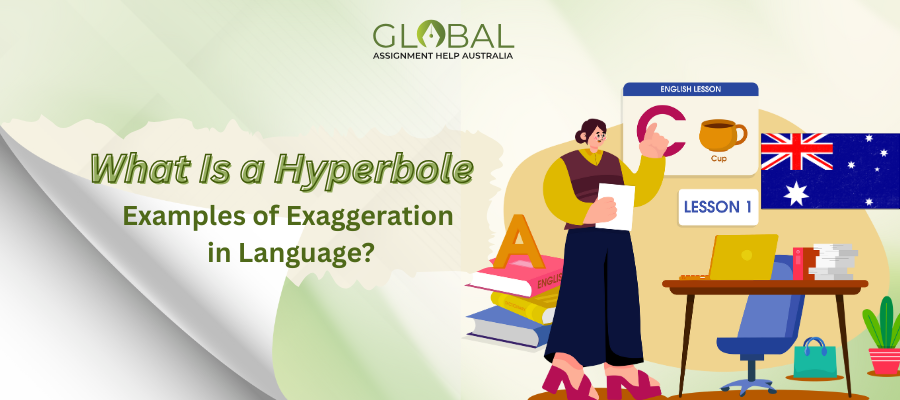 Offers
New
Order Now
Offers
New
Order Now
When William Shakespeare wrote about how the world is a stage and men and women are the pawns. It was almost so complicated for some that they couldn't even understand the literal meaning of the poem. Try doing it for yourself:
Some of you will get the meaning, and some of you will turn to Google for help. But think about the fact that this is the situation while just simply figuring out the meaning of a poem. The entire scene changes as soon as the term "poetry analysis essay" comes into play. There is not just one thing to be done but many, like figuring out the poet's tone, his intentions, his vision for and of the poem, usage of literary devices, etc. all of which will be covered and more in this blog.
In simple terms, a poetry analysis essay is a type of literary essay that is aimed at a complete dissection of any particular poem or set of poems. It will focus on finding out what the poet wanted to say and how he compared his thoughts to the inanimate objects of the world.
It gets difficult for students to write such essays because there are not just one but nine different types of poems that fall under the category of analysis. This ensures that every style of poem will have different structures and thus will require the use of unique tools for analyzing them. This often makes students feel the need for essay help. Are you getting stressed about the same? Don't worry, our experts have got you. Are you getting stressed about the numbers? But don't worry, our experts have got you. For starters, here is a very short list explaining the various types of poems that will lead to an understanding of how to write a poetry analysis essay.
Limerick: If you know Edward Lear, you know limericks. They are short poems, having five stanzas that are at times funny. They have a policy of similar rhyming schemes in the first, second, and fifth lines, while lines three and four will be shorter in length and follow the same rhyming scheme.
Ode: This is often considered as the oldest form of poetry and have an ancient Greek origin. It has a typical structure of including 10 lines in a stanza and they have to rhyme. They were historically always sang in accompany of a musical instrument. They were also focused on praising an even or any person.
Sonnet: If you remember Shakespeare when you hear the word sonnet, then it is no new thing. Because he was the one who made this style so popular, or at least he is credited with having done so. It is a fourteen-line poem that originated in Italy and was initially dedicated to dealing with love. It has a rhyming scheme that could have been like ABAB CDCD EFEF GG or ABBA ABBA CDE CDE.
Acrostic: You must have read one of them in school. They are often confused with haikus due to the similarities in their length. They are an interesting style of poetry that deals with spelling out a name or a word or a phrase or even a message with the first letter at the beginning of every line. It doesn't have to rhyme. It follows the theme according to the chosen word.
Villanelle: It is among the old poem types that originated in France. And it is notoriously famous for its excessive rules. It will have 19 lines in total. In which there will be 6 stanzas. The first five of them will each have three lines, and the final stanza will have four lines. The rhyming scheme will be ABA for the first four stanzas and ABAA for the last stanza. And that is not just it. There are more rules for repetition.
Haiku or Hokku: It was invented by the ancient Japanese and is known for its small size. It consists of three lines. Both the first and last lines have five syllables each, while the second line has seven syllables. This style has many fans all around the world.
Free-Verse: Free verse is a style of poetry that does not have a regular rhythm. It is literally free (without any rhyme). It has been developed in modern times and has grown immensely popular among the youth. It doesn't have any set of specific rules; it could have a rhyme or not have one; it could have two stanzas or many; etc. This is both its asset and liability.
Elegy: These are very specific sets of poems, and when we say specific, we are not talking about rules. They have a fixed subject, and that is death. Yes. They don't have any rules and are usually written to either mourn a loved one or to talk about them. They are not sad, but rather hopeful.
Ballad: This is a traditional poetry style that delivers a lot of drama and emotions to the audience in a story format. They are said to have had European descent in the late Middle Ages. They were part of the folklore and were passed down from generation to generation. Music used to be a big part of the recital for these poems. They have a rhyming scheme of ABAB or ABCB.
Knowing these types of poems and their proper structural and functional rules will give you an upper hand while concentrating on the nuances of a poem while analysing it. Also, this is helpful in picking up the literary devices and tools used by the poet and the particular rhyming scheme opted for.
Are you also worried about the question of how to write a poetry analysis essay? It really is simply written the way any other essay would be written. It does not need to have very strict structural rules. Like any regular essay, it will have three components:

Where introduction would be telling about the theme you have picked for the poem. The body section goes on to detail explanation about the features of that particular poem and conclusion will be a short summary explaining everything that you wanted to say or that you thought the the poet has used in his poem. The one major difference between a regular essay and a poetry analysis essay is, that this kind of essays will require you to be very detailed about all the tools that the poet used. For learning how to achieve that take a deeper look into the structure of such essays.
Introduction
While writing this part, it is very important to keep a few things in mind as mentioned by the English essay help providers
This is crucial to give the reader a brief overview of the poem and the poet so that they can better relate to the poem.
Body of Text
This is a very technical and equally crucial part of the essay. That is because very rarely does technicality get involved in literary things. This is precisely why the body of your essay must contain an answer to every element that is mentioned below.
While you are giving details about the above mentioned points, keep in mind to use short sentences and always make references to the poem that you have selected. As such, it never hurts to add the quotes to support your statement about the finding. Ensure that every comment that you make is explicit.
Conclusion
Use this opportunity to clearly express what theories you have discovered and presented. See to it that you have achieved every goal that you had with respect to your poetry analysis essay. Emphasize on them in this section. Make it short but informative. You can also attempt to leave your reader with some unique or memorable information.
Poetry analysis is hard, but what is even more difficult is choosing a topic for the poetry analysis essay. Because, in the end, it's an essay, not just a regular poetry analysis. The reason behind it is the amount of effort one has to put into the research about what poem they want to pick up, a suitable topic according to their own theories about what the poet wants to say. And it takes a great amount of work to finally be able to understand what the poet was trying to express.
Sometimes students take the easy way out by using the title of the poem as the topic of their essay. That should never be done. Because it says you did not put in the amount of effort that was required, it says that you are not creative enough. Why is it important to choose a topic for your essay? Because when you do, your theory becomes clear to the professor, making a good impression on him. If you are someone who cannot decide or come up with a nice title for your poetry analysis essay, asking the below mentioned questions might be helpful.
Answer the above mentioned question to get yourselves the perfect topic for poetry analysis essay example.
If you are facing any other difficulty with respect to completing your poetry analysis essay, do not worry. Our experts at Global Assignment Help Australia have solutions for all your problems. They will help you at every step of this task. For starters, if you are looking for poetry analysis essay introduction examples, they will give you plenty of them and an added tip like, pick a poem that you would be interested in writing about. This will peak your interest in writing the essay, leading to a better analysis. Do not shy away from asking questions because you feel they are simple. If you want to know how to write a poetry analysis essay, just ask away. Our experts will provide you with tips regarding the entire procedure. Alongside that, the experts could also help you understand the basic difference between prose and verse for a more refined understanding of the task at hand.
Not only that, we have some added benefits for you guys to enjoy. Have a look at them:
You may also like to read:
Diffrence Between Porse And Verse
How To Write A Philosophy Essay
How To Craft an Impressive Argumentative Essay
What Are Literary Devices? Popular Types for Poetries and Prose

Grab this exclusive offer and start your journey to savings today! Act quickly, as this special offer won't be around for long!

This blog explains what is a hyperbole, provides engaging examples, & explores how to use hyperbole.

Explore 150+ funny debate topics to spark laughter, creativity, and lively discussions in 2025

Cross-Sectional Study basics explained with steps, examples, and comparisons.
Limited Time Offer
Exclusive Library Membership + FREE Wallet Balance
1 Month Access !
5000 Student Samples
+10,000 Answers by Experts
Get $300 Now
Update your Number
